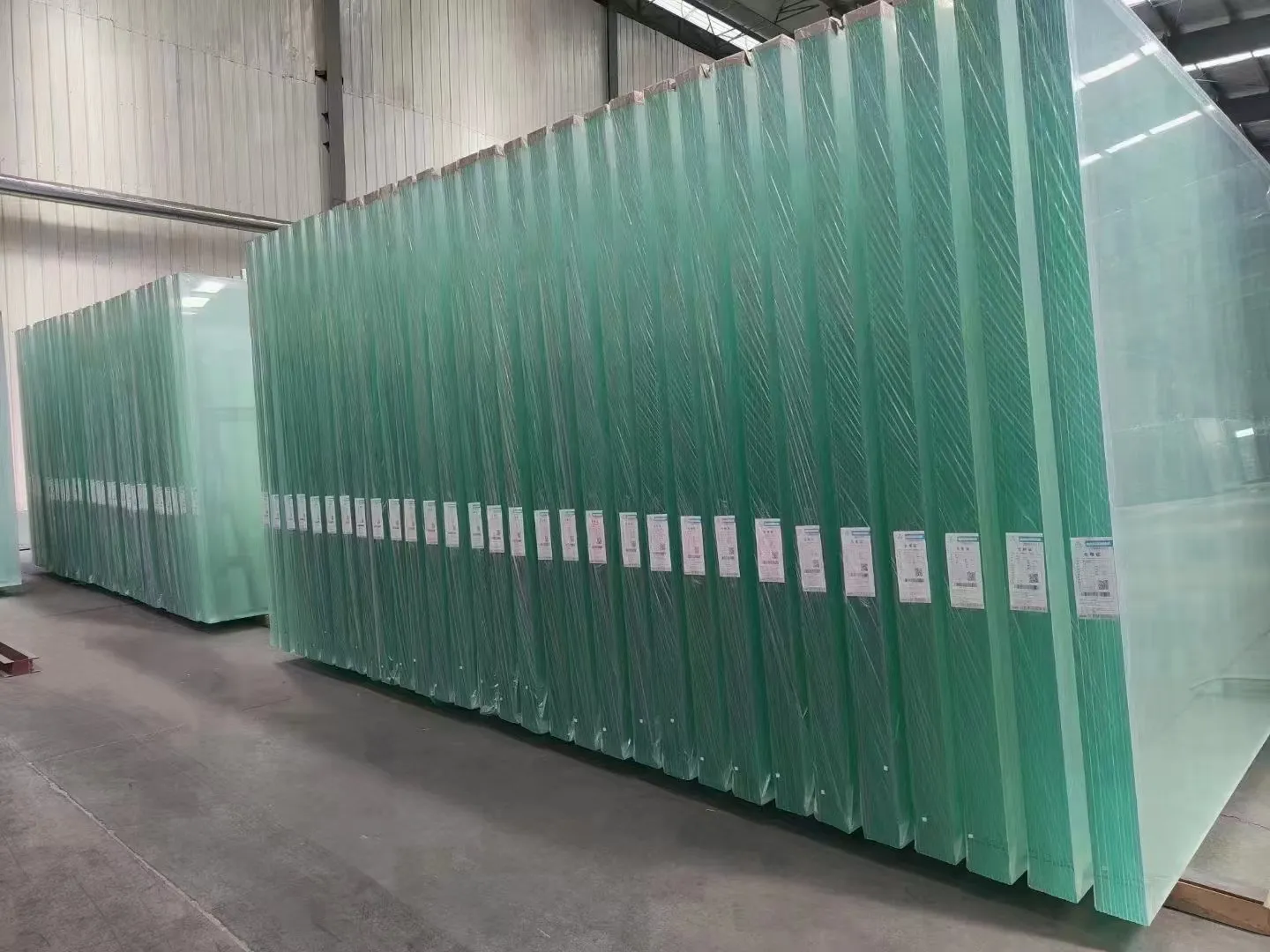The Versatility and Benefits of Reflective Float Glass
Reflective float glass, a product of advanced manufacturing technologies, has become a staple in modern architecture and interior design. This innovative glass combines the transparency of traditional float glass with a reflective coating, allowing for a myriad of applications ranging from residential structures to commercial buildings, as well as indoor decor. In this article, we will explore the characteristics, advantages, and various uses of reflective float glass, highlighting its significance in today’s design landscape.
First and foremost, reflective float glass is produced through a unique float glass process, where molten glass is floated on molten tin to create a smooth, uniform surface. The reflective properties are added through a thin layer of metallic coating, which reflects solar radiation while allowing natural light to filter through. This dual functionality of reflecting and transmitting light makes reflective float glass an attractive option for architects and designers seeking to enhance both aesthetic appeal and energy efficiency.
One of the most significant benefits of reflective float glass is its energy efficiency. The reflective layer reduces heat gain from sunlight, which can lead to lower energy consumption for air conditioning in buildings. This not only decreases operational costs for property owners but also contributes to environmental sustainability by reducing the carbon footprint of the structure. In an era where energy conservation is paramount, reflective float glass offers a compelling solution for developers who aim to meet green building standards.
In addition to its energy-saving qualities, reflective float glass also enhances privacy. While it allows occupants to enjoy natural light, the reflective exterior acts as a barrier against prying eyes, making it an excellent choice for both residential and commercial properties. This feature is particularly valued in urban environments where buildings are in close proximity to one another. Occupants can feel secure and comfortable in their spaces without the constant worry of being observed from the street or adjacent buildings.
reflective float glass
Aesthetic appeal is another key aspect of reflective float glass. Its sleek, shiny surface adds a modern touch to any facade, creating striking visuals that can elevate the overall design of a building. The play of light and reflections creates dynamic interactions between the structure and its surroundings, allowing architects to experiment with various forms and colors in their designs. From high-rise offices to shopping malls and residential complexes, reflective float glass can adapt to any style, making it a versatile choice for a range of architectural applications.
Moreover, reflective float glass is available in various thicknesses and colors, further expanding its applicability. Designers can choose from a spectrum of tints, allowing them to achieve specific aesthetic goals or to comply with local building regulations. The ability to customize the glass according to project needs provides architects and builders with enhanced flexibility and creativity in their work.
Safety and durability are also critical factors that contribute to the popularity of reflective float glass. This type of glass is manufactured to meet stringent safety standards, ensuring that it can withstand extreme weather conditions and potential impacts. Additionally, many manufacturers offer tempered versions of reflective float glass, which is processed to increase its strength and thermal resistance. This durability makes it suitable for various applications, from curtain walls in skyscrapers to glass railings in outdoor spaces.
Lastly, as the demand for innovative materials grows, reflective float glass continues to evolve. New technologies are being developed to improve its performance, such as advanced coatings that increase energy efficiency even further or special treatments that enhance its scratch resistance. As sustainability takes center stage in the building industry, reflective float glass stands out as a material that aligns with contemporary values.
In conclusion, reflective float glass is a multifaceted material that combines beauty, functionality, and sustainability. With its ability to reflect sunlight while allowing natural light to permeate, it offers substantial benefits in terms of energy efficiency and privacy. Its aesthetic versatility and durability further cement its position as a favored choice among architects and designers. As we move towards a more sustainable and innovative future in architecture, reflective float glass is sure to play a pivotal role in shaping the environments we inhabit.
 Afrikaans
Afrikaans  Albanian
Albanian  Amharic
Amharic  Arabic
Arabic  Armenian
Armenian  Azerbaijani
Azerbaijani  Basque
Basque  Belarusian
Belarusian  Bengali
Bengali  Bosnian
Bosnian  Bulgarian
Bulgarian  Catalan
Catalan  Cebuano
Cebuano  Corsican
Corsican  Croatian
Croatian  Czech
Czech  Danish
Danish  Dutch
Dutch  English
English  Esperanto
Esperanto  Estonian
Estonian  Finnish
Finnish  French
French  Frisian
Frisian  Galician
Galician  Georgian
Georgian  German
German  Greek
Greek  Gujarati
Gujarati  Haitian Creole
Haitian Creole  hausa
hausa  hawaiian
hawaiian  Hebrew
Hebrew  Hindi
Hindi  Miao
Miao  Hungarian
Hungarian  Icelandic
Icelandic  igbo
igbo  Indonesian
Indonesian  irish
irish  Italian
Italian  Japanese
Japanese  Javanese
Javanese  Kannada
Kannada  kazakh
kazakh  Khmer
Khmer  Rwandese
Rwandese  Korean
Korean  Kurdish
Kurdish  Kyrgyz
Kyrgyz  Lao
Lao  Latin
Latin  Latvian
Latvian  Lithuanian
Lithuanian  Luxembourgish
Luxembourgish  Macedonian
Macedonian  Malgashi
Malgashi  Malay
Malay  Malayalam
Malayalam  Maltese
Maltese  Maori
Maori  Marathi
Marathi  Mongolian
Mongolian  Myanmar
Myanmar  Nepali
Nepali  Norwegian
Norwegian  Norwegian
Norwegian  Occitan
Occitan  Pashto
Pashto  Persian
Persian  Polish
Polish  Portuguese
Portuguese  Punjabi
Punjabi  Romanian
Romanian  Russian
Russian  Samoan
Samoan  Scottish Gaelic
Scottish Gaelic  Serbian
Serbian  Sesotho
Sesotho  Shona
Shona  Sindhi
Sindhi  Sinhala
Sinhala  Slovak
Slovak  Slovenian
Slovenian  Somali
Somali  Spanish
Spanish  Sundanese
Sundanese  Swahili
Swahili  Swedish
Swedish  Tagalog
Tagalog  Tajik
Tajik  Tamil
Tamil  Tatar
Tatar  Telugu
Telugu  Thai
Thai  Turkish
Turkish  Turkmen
Turkmen  Ukrainian
Ukrainian  Urdu
Urdu  Uighur
Uighur  Uzbek
Uzbek  Vietnamese
Vietnamese  Welsh
Welsh  Bantu
Bantu  Yiddish
Yiddish  Yoruba
Yoruba  Zulu
Zulu 

